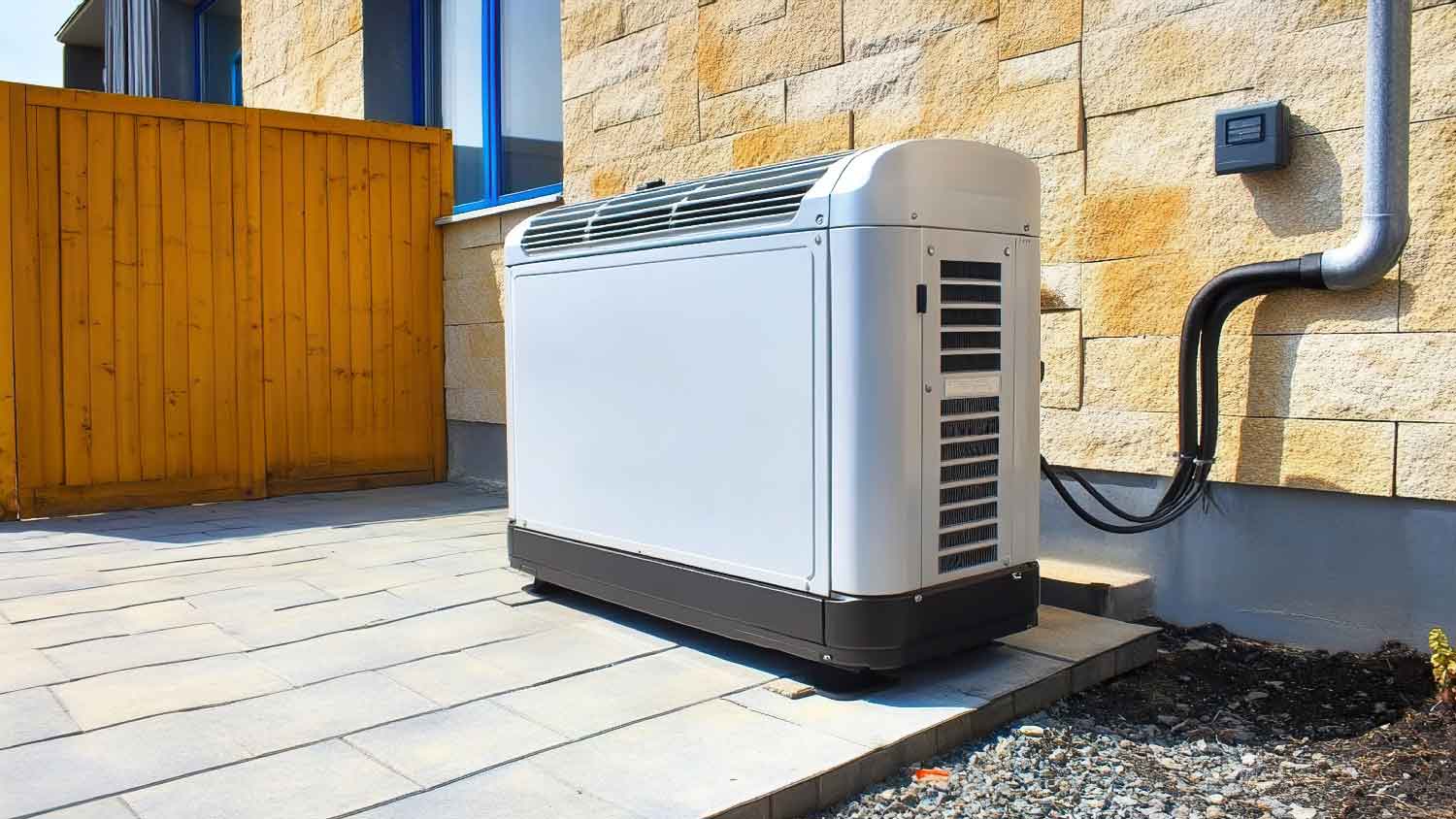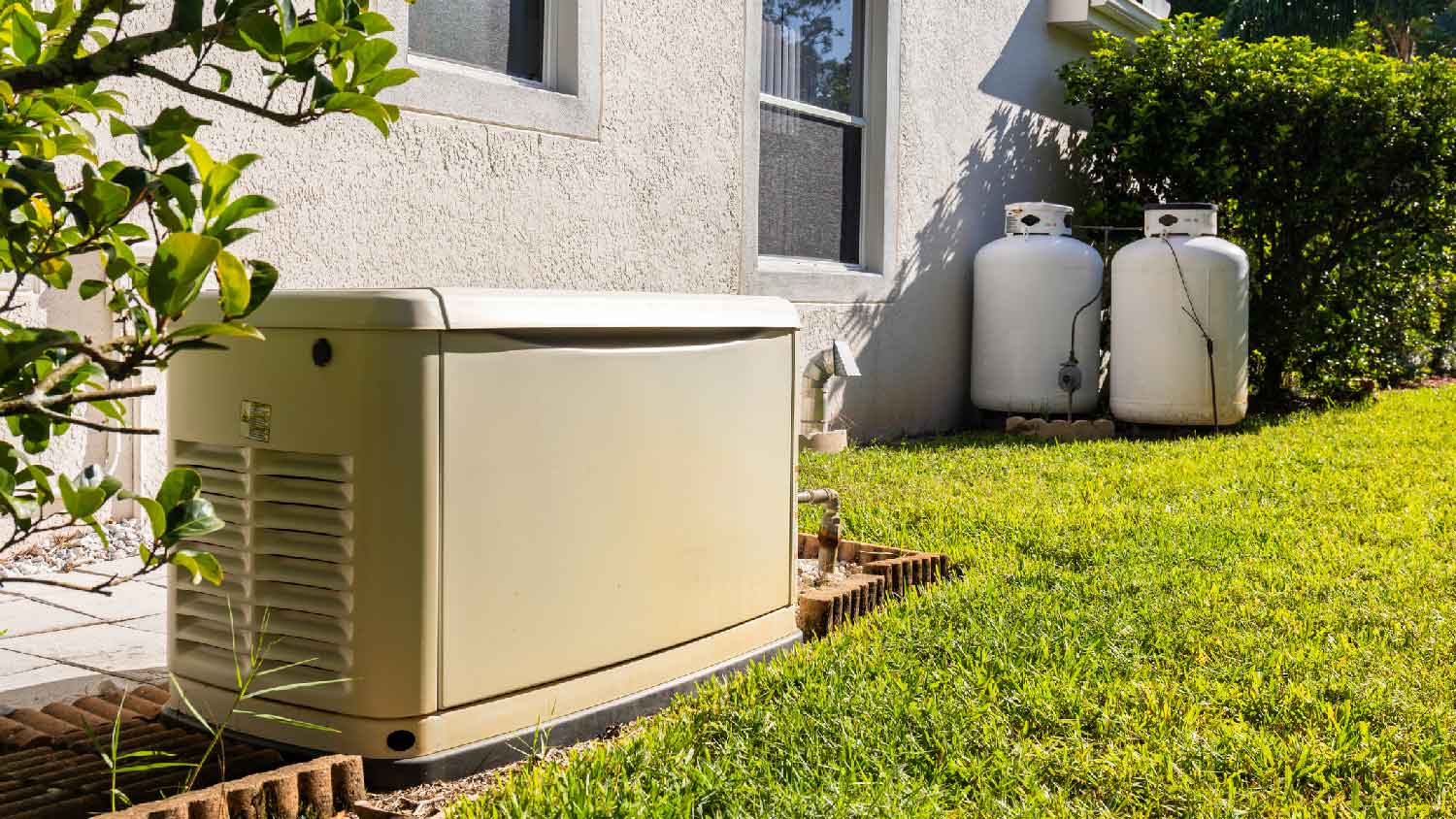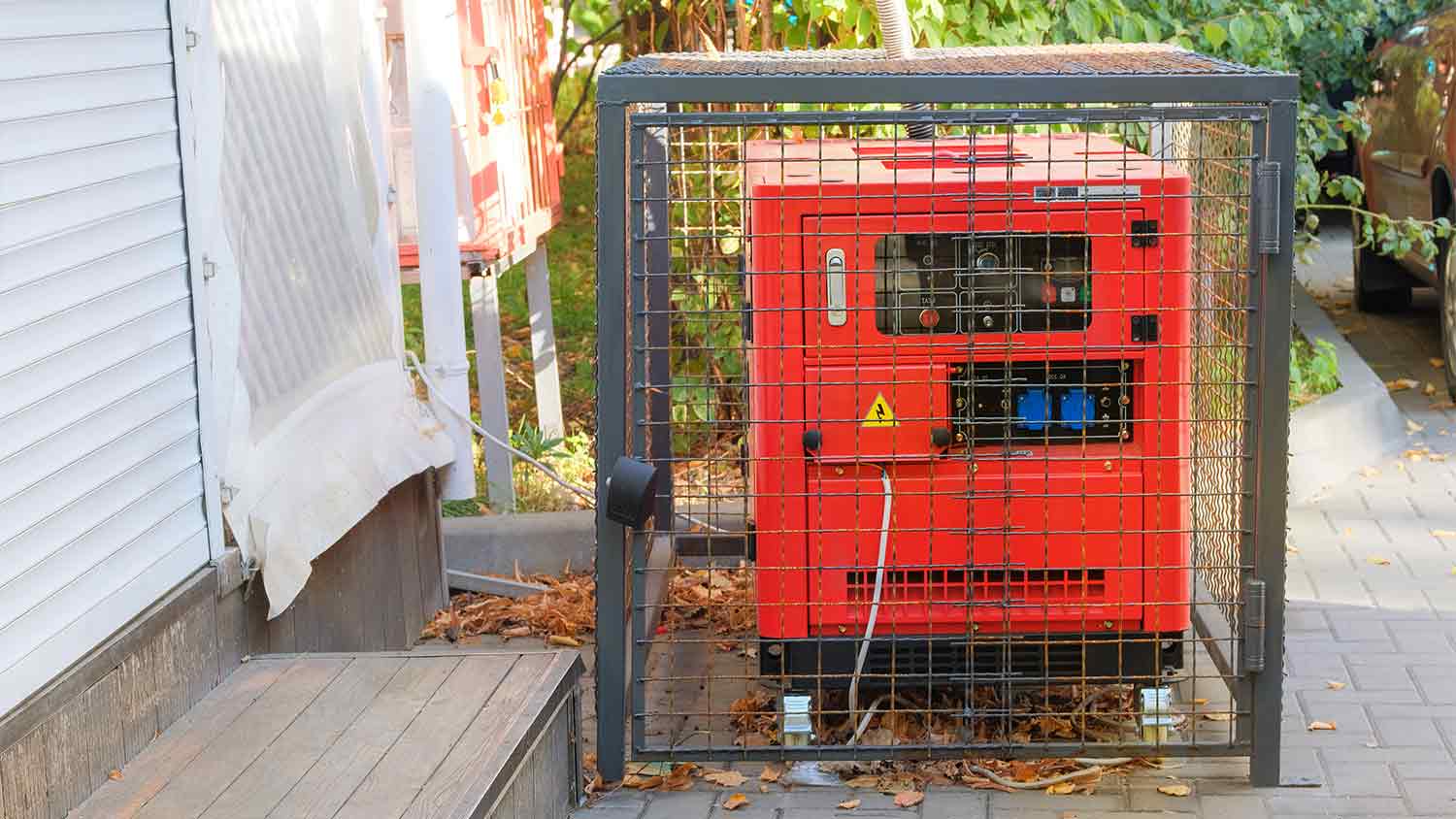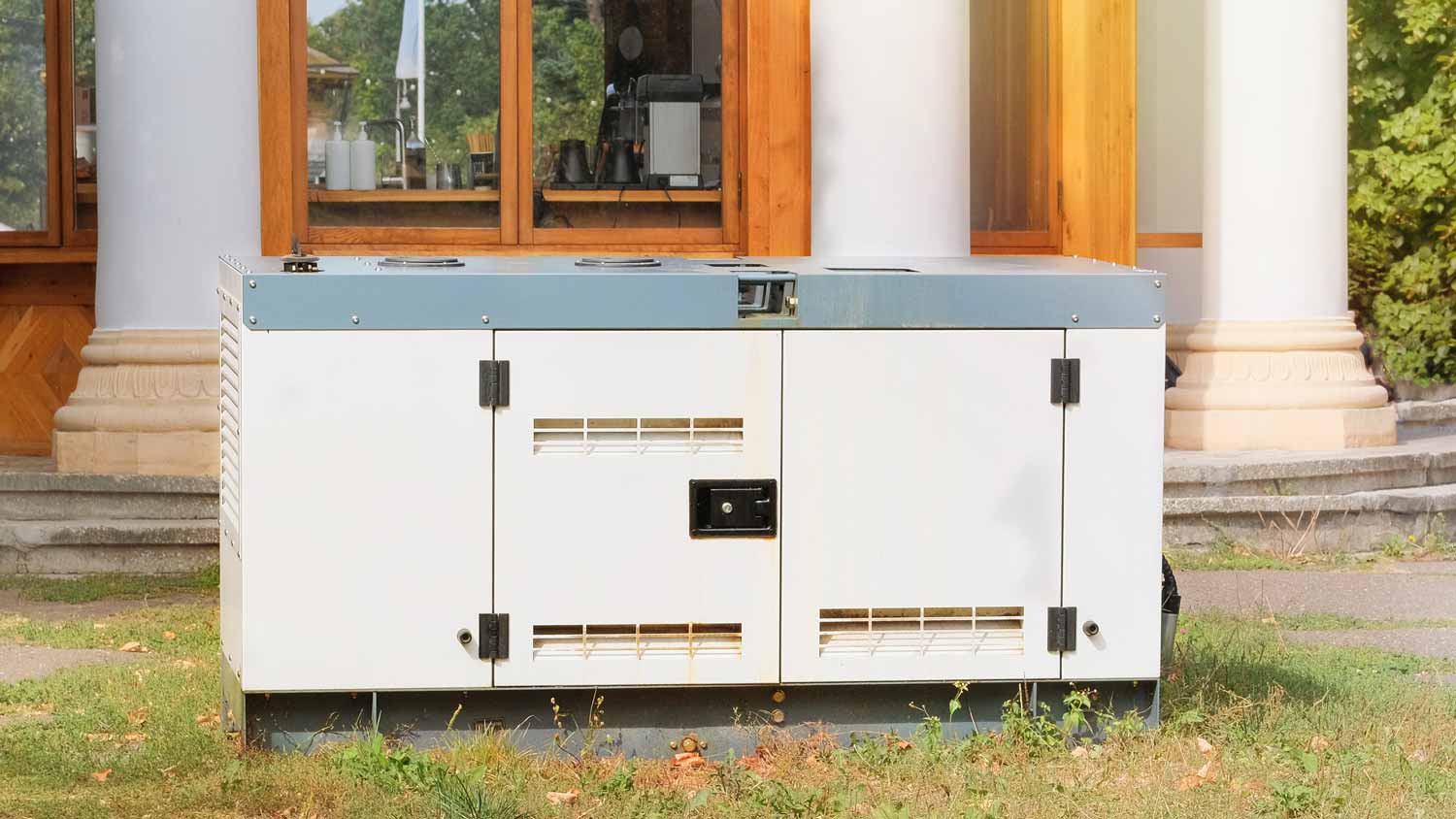Can a Generator Get Wet? What You Need to Know
Can a generator be used whatever the weather?


Most generators come with warnings to avoid using in wet weather conditions, but adequate shelters allow use of generators in the rain.
Rain and wet conditions can lead to generator damage, causing a liability.
It's essential to avoid operating your portable generator in rainy or damp environments without a protective cover, such as a generator cover, steel enclosure, or pop-up canopy.
Do not operate a portable generator in heavy winds or rain.
Consider investing in a whole-house generator to restore power to your home, regardless of the weather.
Unfortunately, inclement weather and power outages often go hand-in-hand, and it’s wise to wonder whether the wet conditions mean your emergency generator can’t operate safely. So, can a generator get wet? Here’s what you need to know about running your generator in the rain.
For a worry-free power backup, leave generator fixes and installations to generator professionals who have the skills, tools, and knowledge required to handle these complex systems.
Can You Use a Portable Generator in the Rain?

The short answer to “Can a generator get wet?” is no. Running an uncovered generator in the rain can damage its wiring and poses a serious risk of electrical shock. While portable generators can withstand light rain and damp conditions to some extent, it’s crucial to take necessary precautions when operating them in wet environments.
Unlike their portable counterparts, a whole-house generator comes equipped with protective enclosures, allowing them to run safely even in weather conditions like rain, sleet, and snow. Investing in the cost of a whole-house generator ensures a means of delivering power to an entire home during emergency outages, regardless of the weather.
How to Run a Generator in the Rain: 5 Safety Tips
While running a generator in heavy rain or snow is unsafe, there are steps you can take to operate one safely in light rain or damp conditions.
1. Place Your Generator in a Safe Location
When you hook up a generator to your house, position it in a dry, solid outdoor location, avoiding spots that tend to collect water during rainfall. Do not place it anywhere where the bottom of the generator could get wet. Look for an elevated spot compared to the rest of the yard. As a general rule, always place your generator at least 10 feet away from your home to mitigate the risk of electrical fires.
2. Add a Cover to Your Generator

Once you’ve found a suitable spot to place your generator, the next step is finding a cover that safeguards its tops and sides without causing it to overheat. This preparation step is an absolute necessity when operating a generator in wet conditions. Options such as pop-up canopies and pre-made plastic or steel enclosures are available. It’s also possible to DIY a cover, but it’s crucial to pay close attention to your generator’s ventilation needs to avoid overheating underneath the cover.
3. Never Operate a Wet Generator
Regardless of whether the rain has stopped, running a wet generator is extremely dangerous. Even accidentally touching a wet generator with wet hands can lead to serious electrical shock.
Beyond the risk of electric shocks, moisture entering the outlets could lead to short-circuiting and substantial damage to the generator. This action might result in costly repairs or even the need for a replacement generator. In some cases, a wet generator running could even harm the connected appliances.
4. Avoid Heavy Winds
Operating a generator during heavy windstorms can be hazardous. Strong winds can lift or knock over your generator, damaging your property or creating a serious electrical hazard. High-speed winds can also make it challenging to keep the generator dry while in operation.
5. Store Your Generator in a Protected Location
Even when your generator is not in use, it’s important to store it in a safe, dry location that’s sheltered from the outdoor elements. This prep step helps ensure you won’t find it damaged or wet when you need to use it during a power outage. Spaces like your garage, shed, basement, or storage unit are excellent places to keep your generator dry until needed. When installing your home’s generator, consult a local generator installer for help setting up the system and ask them to provide recommendations for the best location to store your generator.





- Who Installs Generators? A Complete Guide
- Who Can I Hire to Fix a Generator?
- A Complete Generator Maintenance Checklist
- 15 Generator Uses for Homeowners
- Whole-House Generator Installation: A Complete Guide
- Whole-House Generator Sizing: Everything You Need to Know
- What Size Generator Do I Need? A Guide to Choosing the Right Generator for Your Home
- 8 Types of Generators for Homeowners
- Ultimate Salt Water Pool Maintenance Checklist
- Do Pellet Stoves Need Electricity and Can You Operate Them During a Power Outage?











